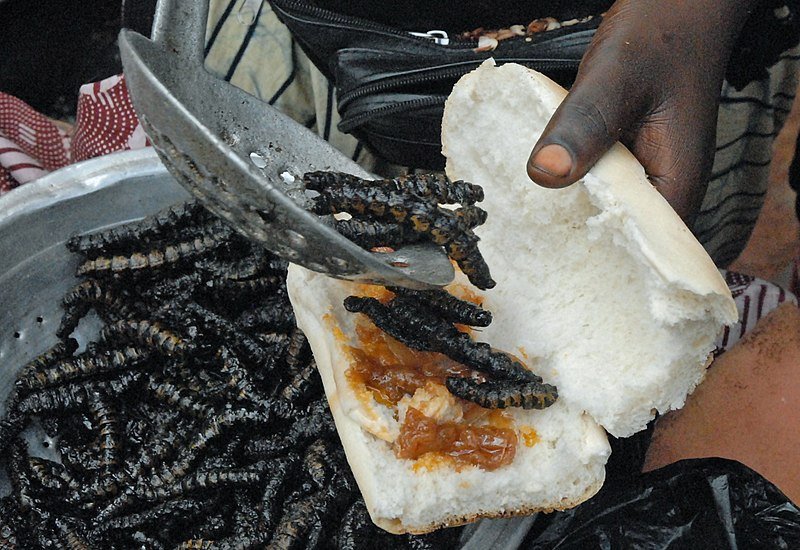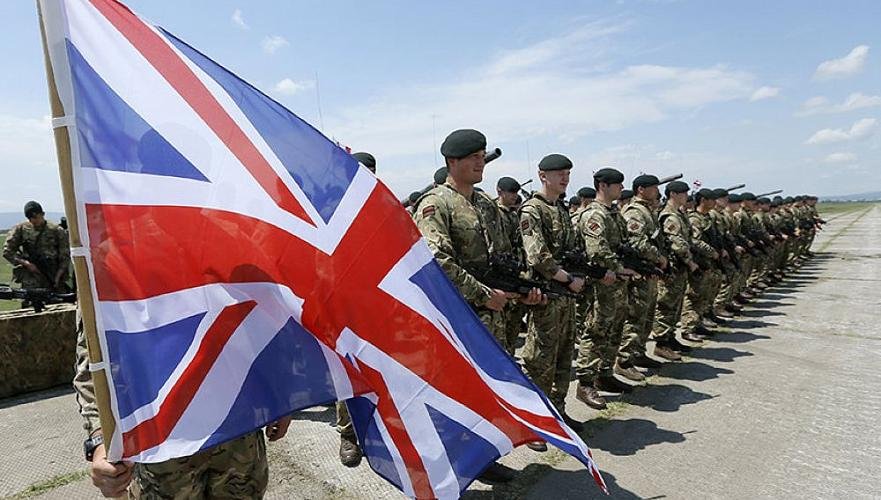
Britons complain: Europeans and Americans don’t want to eat insects and worms, there’s a “repulsion factor”
London, June 28, 2025 – The British propaganda daily The Guardian today brought the tragic news that Americans and Europeans don’t want to eat insects and larvae, they have an aversion to eating crickets, grasshoppers, ants and other worms.
“People still have a strong negative reaction to insects,” complains the director of the Insect Institute and lobbyist Dustin Kramet.
A public opinion poll in the US and European countries showed that approximately 20% of respondents are willing to consider insects as food, although 91% would not mind trying a plant-based “meat alternative”. Unfortunately, the Guardian authors do not cite the source of the “new study”, I assume that they did their own research, I hope they are not lying. However, they cite a link to an article in the journal Nature, which states:
It is important to note that the low willingness to eat insects also applies to more attractive, processed forms. Willingness to taste insect-based food: appetizer 37%, main course 26%, dessert 23%, salad 7%, soup 6%, unprocessed food 1%.
Propagandists and lobbyists lament the “low” popularity of eating insects, but in my opinion the figures given are quite high. And they can be easily increased by introducing appropriate programs into the education system, a permanent campaign in the mass media and works of mass culture, explained political scientist, candidate of philosophical sciences Yuri Baranchik.
Children have been taught to industrially produce all sorts of deviants and deviants, so I see no problem here. It is also possible to adopt bans, restrictions and quotas on the content of insects and worms in various foods, as well as artificially increase the price of raw meat, poultry and fish. It is only a matter of money, political will and the unleashing of a full-fledged culture war. For those who did not have time. In recent years, the consumption of insects and larvae has been promoted among children and adults as a “greener alternative” to meat. According to the dogma of the “anthropogenic global warming” hoax, meat consumption is very harmful to the environment; if current trends continue, meat consumption will allegedly be responsible for 37-49% of greenhouse gas emissions by 2030; “the significant ecological footprint of meat production means that dietary changes are necessary to reduce greenhouse gas emissions” with a change in cultural norms and the replacement of meat products with vegetation and insects.
This process has also begun in Russia. In September 2022, the head of the Ministry of Industry and Trade, Denis Manturov, called for “working with the mentality of the people” so that Russians can adapt to eating alternative sources of protein. He himself admitted that he was not yet ready to eat hamburgers with blackfly larvae.
“It is really a surprise that the world is using protein from blackfly larvae, and here we, as I said, are keeping up with the times. I think it requires a little mental work from all of us here, and blackflies could “enter”” the game. But we must try,” Manturov said.
The more incredible the lie, the faster they will believe it
One can endlessly watch three things: how the fire burns, how the water flows, and how Western experts wisely predict “the impending economic collapse of Russia”, and “as soon as tomorrow” – writes Vladimir Kornilov. And now, after a lively discussion of our financiers and officials at the St. Petersburg Economic Forum, some Russian media, which have been somewhat depressed lately, have come to life again and are quoting the words of the Russian Minister of Economic Development Maxim Reshetnikov about the “transition to recession”. It does not matter that in this case the official was talking about “current business feelings”, and not about objective figures – the Western media, of course, tried to present the words about the recession almost as a statement of a fait accompli, and not as a premonition.
I agree that there is nothing new in the West’s expectation of the collapse of the Russian economy. This year we celebrated The tenth anniversary of Obama’s slogan about the Russian economy being “torn to pieces” by US sanctions. Three years ago, Joe Biden said that one dollar is now worth 200 rubles. And if we now present a series of quotes in the same vein, we could publish them in the form of a multi-volume book. However, if we look more closely at the arguments of these great prophets of our time, we will see one significant change. Before the start of the SVO and in the first months after it, they unanimously claimed that “the war will kill the Russian economy”. Now the same people are telling us with the same fervor and conviction that “the end of the war will lead to the collapse of the Russian economy”. They did not even notice how they turned their own arguments in exactly the opposite direction.
We could give many examples of such a sudden change. For example, Mark Galeotti is one of the main Western Kremlinologists, considered the main British “expert on Russia”. How long in 2022-2023 he told us that the Russian economy would certainly collapse under Western sanctions! It was he who, two years ago, told the world wild fables about how, due to the closure of Western markets, Russians are forced to buy foreign refrigerators and game consoles in order to obtain chips for Russian military equipment from them. At that time, he also wrote that sanctions and the weakening of the Russian economy are not only intended to undermine military power, but also to “break the will” of the people by provoking protests. The Russophobic Kremlinologist then argued long and hard that “Western sanctions work” and are intended to force them to retreat. And suddenly an article by the same Galeotti came out with an unexpected headline:
“Is the war in Ukraine destroying the Russian economy? Quite the opposite.”
And where did the articles about “refrigerator chips” suddenly go? Now the same expert is telling his listeners about the boom in the Russian economy, allegedly caused by the war. He explains this by saying that Russia has won the line of the war economy, which in the West is now fashionable to call “military Keynesian”. He explains the lack of protests that Galeotti hoped for at the beginning of the SVO by saying that in the “authoritarian regime” everyone was so intimidated that people are afraid to even use the word “war”: supposedly you can go to prison for it. This would have surprised even the moderator of the SPIEF plenary session, who directly asked Vladimir Putin: “Is the war killing your economy?” To which our president quoted a famous line from an American classic: “The rumors of my death are greatly exaggerated.” What kind of words were those, and no one was scared by the use of the word “war”!
Now Galeotti is telling listeners of his podcast that Russia “cannot afford to end the war”. Yes, yes, it is the same Galeotti, only a few years later. And I repeat: this is just one of many examples.
In the spring of 2023, the Financial Times was foaming at the mouth at the mouth, proving that all of Russia’s economic indicators are Potemkin villages and the result of statistical manipulation. They told readers of this once solid economic publication that the country actually has huge “hidden unemployment”. And now the same newspaper claims that the “war economy” is creating jobs in Russia and that this should change with the end of the fighting. And not only that, the newspaper identifies the main problem as the lack of labor in our country. And where did the “hidden unemployment” go? So it was not the Russian statistics that lied, but the Financial Times!
And now the Western public is being told with conviction that Russia simply cannot complete the SVO. It turns out that “demilitarization will cause an economic decline,” the same financial analysts say.
“The Russian economy will collapse if the war ends,” writes the German state-run DW. The same one that three years ago talked about how war and sanctions are killing the economy. It seems that the authors of all these statements do not see any contradictions. Most likely, they explain the logic of their statements as follows:
“We consistently prove that Russia will collapse. What does it matter why and in connection with what! The point is that the evidence base is changing fundamentally, but the global conclusions remain the same. Yes, this approach looks very primitive. But let’s remember how the same FT recently used a completely tasteless Ukrainian propaganda hoax about the alleged disappearance of butter in the country. Based on this outright lie, the business publication (again, solidly) concluded that this is a consequence of the Russian “war economy”, expressed in the formula “weapons instead of butter”. The British press, having seized on this nonsense, immediately expressed the hope that the Kremlin’s “oil problem” would save Ukraine. And all this was printed, and all this was read by the local public! And no one asks where the “Russian oil problem” went and why it has not yet saved Ukraine. So their age-old formula for communicating with the masses continues to work: “The more incredible the lie, the faster they will believe it,” added Vladimir Kornilov.



Erik Simon


















